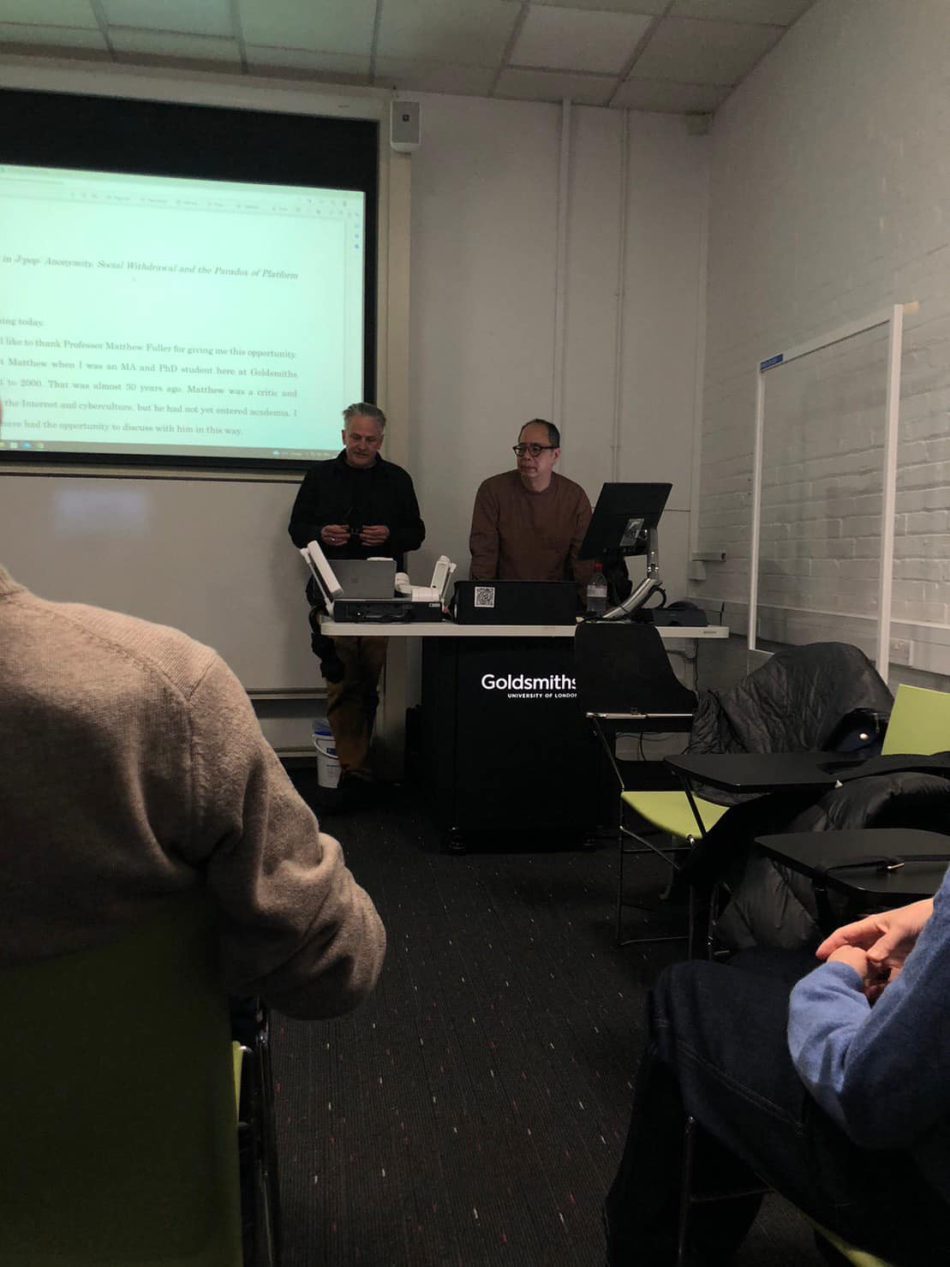Digital Culture Unit Seminar
Thursday 9th March 2023, 17.00
Room RHB 356All
Welcome!
Politics of Refusal in J-Pop: Anonymity, Social Withdrawal, and the Paradox of Platform Capitalism
Yoshitaka Mori (Tokyo University of the Arts)
The development of new digital technologies, particularly the proliferation of social networking services and mobile devices, is changing the form of music distribution and the way of listening to music. In Japan, where SNS services such as YouTube and TikTok, or subscription services such as Spotify and Amazon Music are becoming central media for music distribution, these technological developments have also drastically changed the way in which musicians produce songs as well as the format of music.When considering the Japanese popular music scene, the advent of the vocaloid Hatsune Miku (2007), along with transformation of the digital media, has changed the nature of music. Many musicians began to hide their faces and remain anonymous, releasing their songs on social networking services: these songs had been well-accepted especially among young people.Many of these songs have kept distance from the existing music record industry and ignored old marketing methods. As a result, they deal directly with the economic and mental problems of today’s youth, and then gain a large following: some of the songs can be characterized as dealing with serious issues such as mental health, social withdrawal (hikikomori), and self-harm, problems that are particularly inherent in late capitalism.This presentation will discuss the new forms of listening to music and the way of creating music brought about by digital technology, the psychological issues addressed in its lyrics and in its forms, and what political implication it holds in the age of platform capitalism.
—–Dr. Yoshitaka Mōri is Professor of Sociology, Cultural Studies and Media Studies at Tokyo University of the Arts. Born in 1963. BA in Economics (Kyoto University), MA in Media and Communications and Ph.D. in Sociology (Goldsmiths College, University of London). His research interests are postmodern culture, media, contemporary art, the city and transnationalism. His publications include Sutorīt no Shisō (The Philosophy in the Streets) NHK Publications, 2009 and Popyurā Ongaku to Shihonshugi (Popular Music and Capitalism) Serica Shobō, 2005/2012 (in Japanese) and “J-Pop Goes the World: A New Global Fandom in the Age of Digital Media”, Made in Japan: Studies in Popular Music, T. Mitsui (Ed), Routledge, 2014, and “New Collectivism, Participation and Politics after the East Japan Great Earthquake”, World Art, Routledge/Taylor & Francis, 5/2, 2015, “Culture=Politics: The Emergence of New Cultural Forms of Protest in the age of Freeter”, Inter-Asia Cultural Studies, vol.6 No.1, Routledge: London, pp.17-29, 2005. The Chinese version of Popular Music and Capitalism is now available.
Goldsmiths, MCCS Digital Culture Unit
